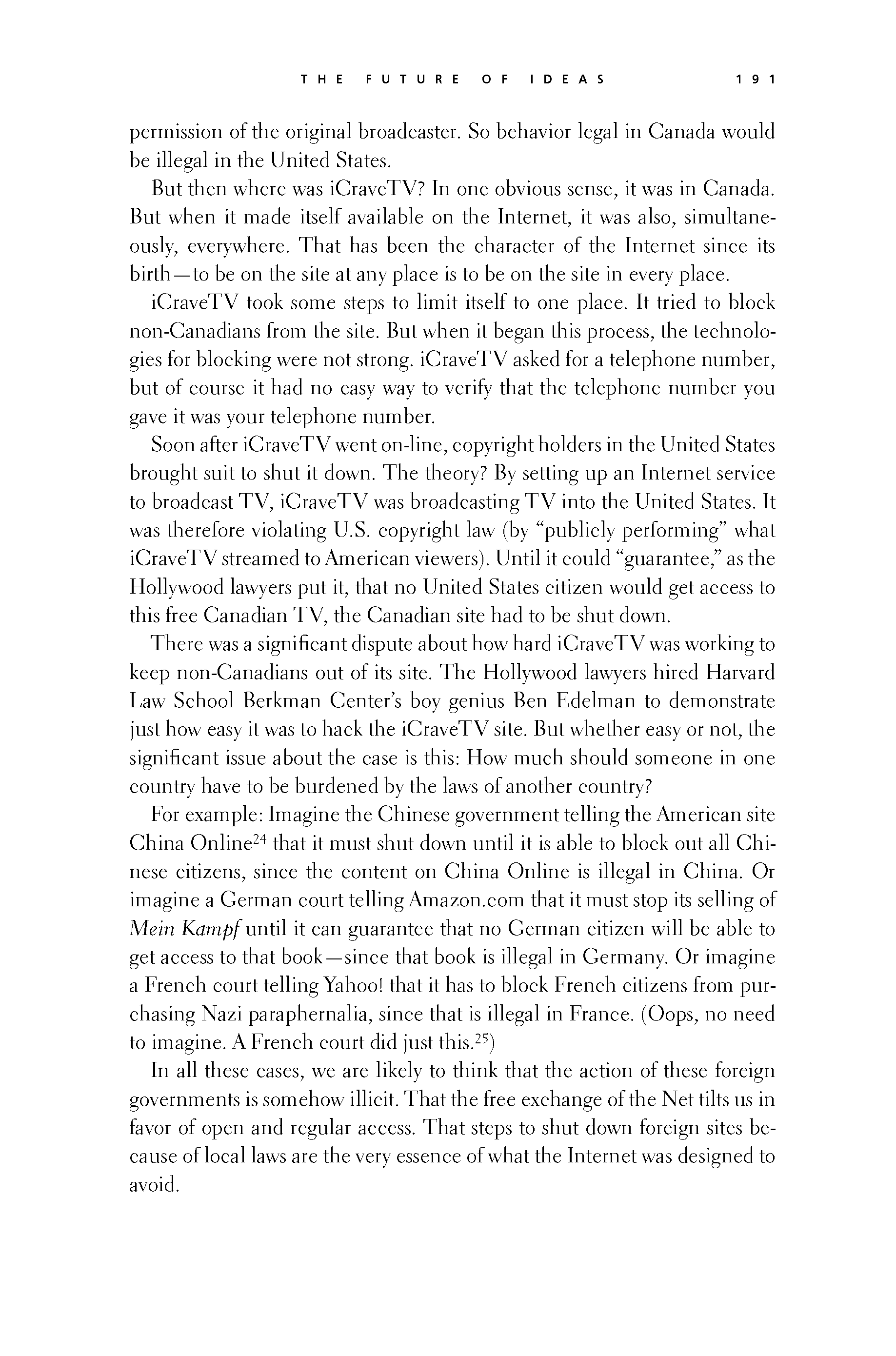 p190 _
-chap- _
toc-1 _
p191w _
toc-2 _
+chap+ _
p192
p190 _
-chap- _
toc-1 _
p191w _
toc-2 _
+chap+ _
p192
permission of the original broadcaster. So behavior legal in Canada would
be illegal in the United States.
But then where was iCraveTV? In one obvious sense, it was in Canada.
But when it made itself available on the Internet, it was also, simultane-
ously, everywhere. That has been the character of the Internet since its
birth -- to be on the site at any place is to be on the site in every place.
///\\\
iCraveTV took some steps to limit itself to one place. It tried to block
non-Canadians from the site. But when it began this process, the technolo-
gies for blocking were not strong. iCraveTV asked for a telephone number,
but of course it had no easy way to verify that the telephone number you
gave it was your telephone number.
Soon after iCraveTV went on-line, copyright holders in the United States
brought suit to shut it down. The theory? By setting up an Internet service
to broadcast TV, iCraveTV was broadcasting TV into the United States. It
was therefore violating U.S. copyright law (by "publicly performing" what
iCraveTV streamed to American viewers). Until it could "guarantee," as the
Hollywood lawyers put it, that no United States citizen would get access to
this free Canadian TV, the Canadian site had to be shut down.
There was a significant dispute about how hard iCraveTV was working to
keep non-Canadians out of its site. The Hollywood lawyers hired Harvard
Law School Berkman Center's boy genius Ben Edelman to demonstrate
just how easy it was to hack the iCraveTV site. But whether easy or not, the
significant issue about the case is this: How much should someone in one
country have to be burdened by the laws of another country?
For example: Imagine the Chinese government telling the American site
China Online[11-24] that it must shut down until it is able to block out all Chi-
nese citizens, since the content on China Online is illegal in China. Or
imagine a German court telling Amazon.com that it must stop its selling of
_Mein_Kampf_ until it can guarantee that no German citizen will be able to
get access to that book -- since that book is illegal in Germany. Or imagine
a French court telling Yahoo! that it has to block French citizens from pur-
chasing Nazi paraphernalia, since that is illegal in France. (Oops, no need
to imagine. A French court did just this.[11-25])
In all these cases, we are likely to think that the action of these foreign
governments is somehow illicit. That the free exchange of the Net tilts us in
favor of open and regular access. That steps to shut down foreign sites be-
cause of local laws are the very essence of what the Internet was designed to
avoid.
[[191]]
p190 _
-chap- _
toc-1 _
p191w _
toc-2 _
+chap+ _
p192